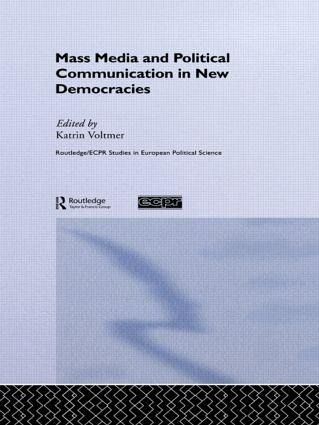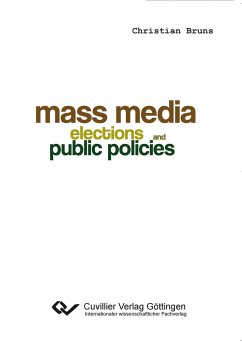
Mass Media and Political Communication in New Democracies

PAYBACK Punkte
35 °P sammeln!
This book examines how political communication and the mass media have played a central role in the consolidation of emerging democracies around the world. Covering a broad range of political and cultural contexts it investigates the problems and conflicts arising in the process of establishing an independent media and competitive politics in post-autocratic societies.














